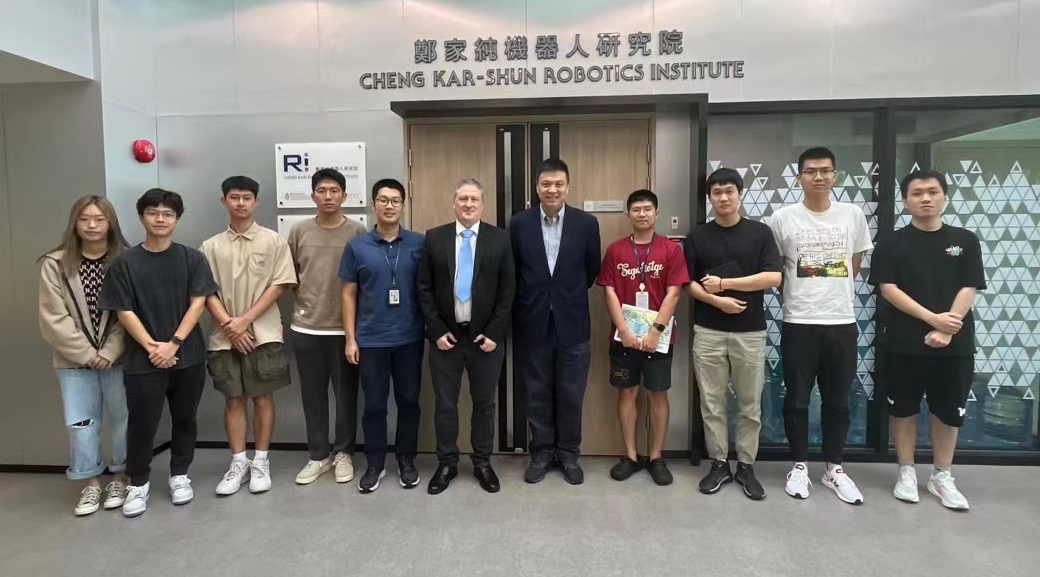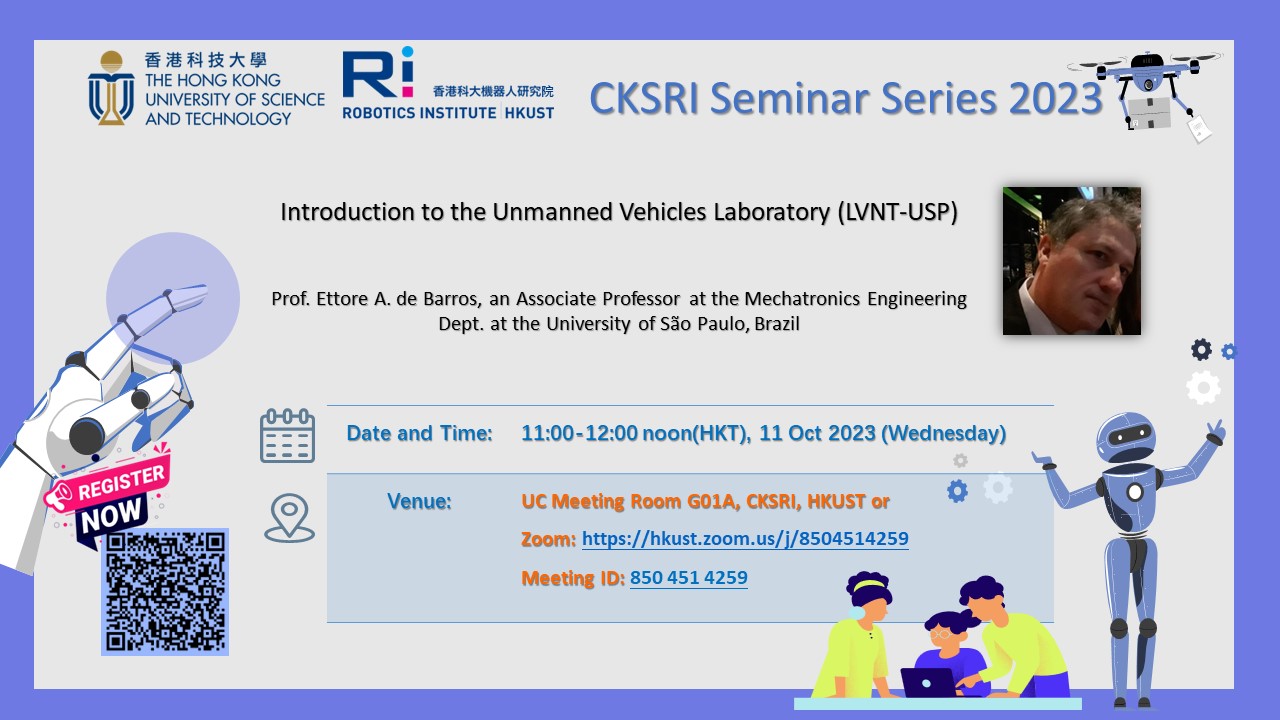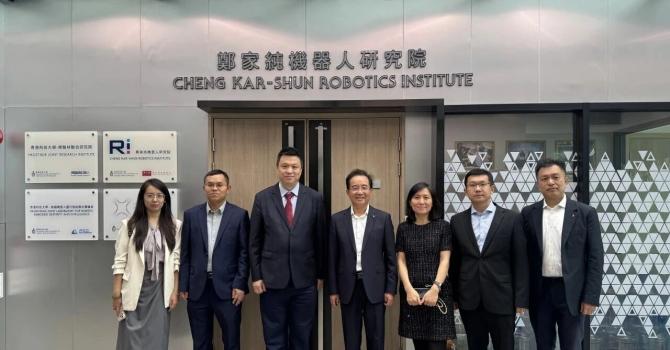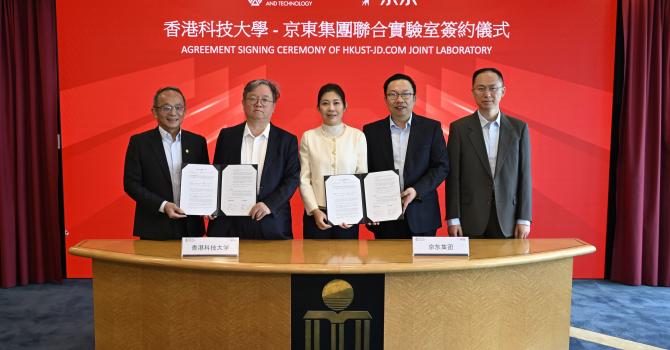CKSRI Seminar Series 2023 "Introduction to the Unmanned Vehicles Laboratory (LVNT-USP)"

Thank you to everyone who joined us today at CKSRI Seminar!
We are honored to have Prof. Ettore A. de Barros, an Associate Professor at the Mechatronics Engineering Dept. at the University of São Paulo, Brazil, as our distinguished speaker.
Abstract: This seminar presents an introduction to the Unmanned Vehicles Laboratory (LVNT-USP), which belongs to the department of Mechatronics Engineering of the University of Sao Paulo. The main activities in the LVNT-USP are focused on underwater robotics.
The prototypes developed at the LVNT-USP include an Autonomous Underwater Vehicle, the Pirajuba AUV, the Mandí II ROV, the Poli Maru III ASV and related systems, such as underwater actuators, sensors and communication systems. The “Pirajuba” AUV and “Mandí II” ROV are applied to research on dynamics, navigation, and control of underwater vehicles. The AUV has also been applied to the oceanographic area, for detecting and recording images of the marine plankton. The Mandí II ROV is a new version of the Mandí ROV, originated from a project on inspection of hydropower plants. Besides the focus on inspection of underwater structures, the Mandi II ROV is currently aimed to support oceanographic investigations, and to function as a test bed for research on control and navigation of UUVs. The AUV and ROV technologies are merged into a hybrid type of underwater vehicle under development to be applied to the offshore industry and marine environment monitoring. Recently, the LVNT-USP also developed an Unmanned Surface Vehicle, the “Poli-Maru III”, aimed to work as a test bed for research on AUV navigation, and for applications to environment monitoring and oceanographic research.
Short Biography: In 1985, Ettore A. de Barros obtained his BSc in Naval Architecture and Marine Engineering from the University of São Paulo, where he also received his MSc. In 1994, he obtained his Doctor of Engineering degree at the Faculty of Naval Architecture and Ocean Engineering from the University of Tokyo, where he also received a post-doctoral degree in 1996. In 2005, he received a post-doctoral degree at the Institute of Systems and Robotics, Instituto Superior Técnico, from the University of Lisbon. Since 2000, he has been working at the Mechatronics Engineering Department of the Polytechnic School of the University of Sao Paulo, where he is an Associate Professor, and coordinates projects related to underwater robotics and related technologies. He has been a member of the Marine Systems Committee of the International Federation of Automatic Control (IFAC) since 2004. Doctor de Barros is the representative of the Universidade de São Paulo at the Ocean Alliance, which has included China and Portuguese-Speaking Countries since 2022.




